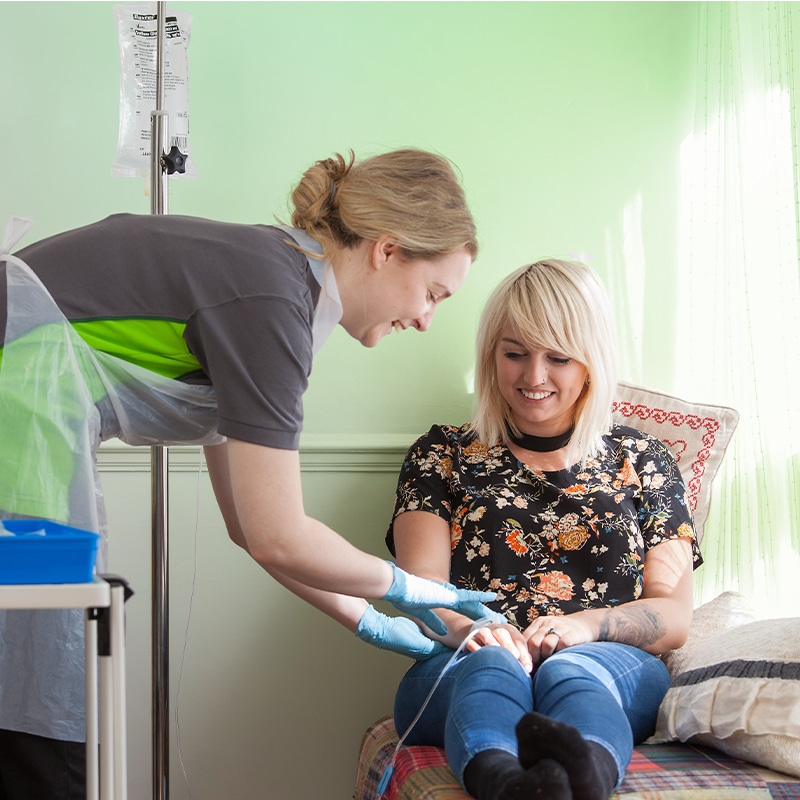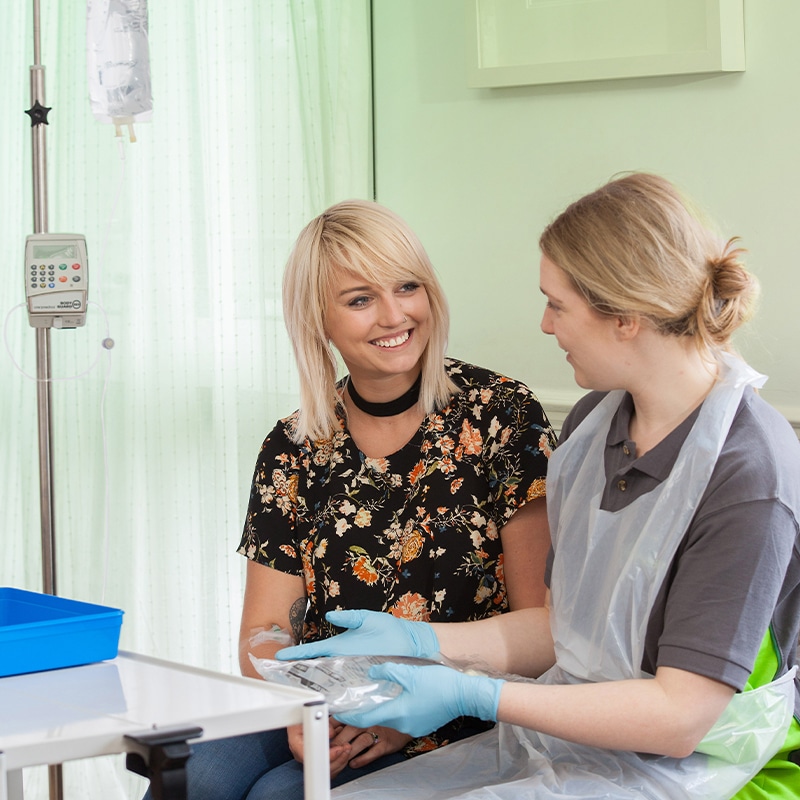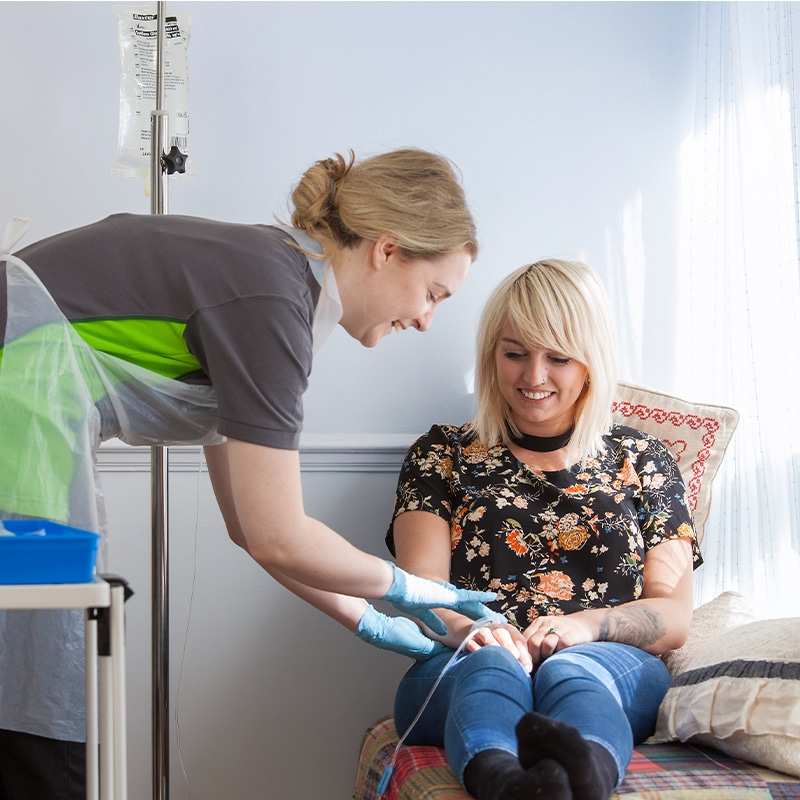The Silent Strain: How Employers Can Help to Alleviate Compassion Fatigue Among Healthcare Professionals
By Sharon Benson, HR Director, and Jo Upton, Director of Nursing and Clinical Services at LloydsPharmacy Clinical Homecare
Within the heart of our healthcare framework, those working directly with people epitomise the pillars of care and compassion, and their unwavering commitment forms the cornerstone of patient support. Their roles, particularly pronounced in demanding fields such as oncology, transcend mere medical care, delving into the realms of emotional support. However, this relentless dedication bears a hidden toll – compassion fatigue, a profound erosion of emotional and physical stamina, often leading to a skewed perception of the world.
Compassion fatigue, characterised by a deep-seated emotional and physical weariness stemming from prolonged exposure to stressful caregiving environments, is increasingly prevalent among nurses. But it’s crucial to emphasise that this phenomenon is not confined to the nursing profession alone. At Lloyds Pharmacy Clinical Homecare (LPCH), our drivers, patient services staff, and pharmacy teams are equally susceptible to compassion fatigue.
This amplifies the need to address this issue with a broad and inclusive approach, reflecting the universality of compassion fatigue across different roles within any organisation. It manifests as exhaustion, irritability, diminished empathy, and a sense of reduced personal accomplishment. There are also physical symptoms like changes in appetite, digestive issues, and headaches, which are significant, yet, often overlooked.
The genesis of compassion fatigue is multifaceted, rooted in the intrinsic emotional labour associated with the profession. The concept of moral injury, particularly relevant since the Covid-19 pandemic, plays a crucial role in this. Moral injury, often resulting in symptoms associated with PTSD, can lead to a loss of compassion for oneself and others, further exacerbating compassion fatigue. This poses significant risks to mental health and contributes to an increased number of professionals leaving the field. Let’s focus on nurses for a moment. The intimate nature of nurse-patient relationships, especially within oncology where outcomes are uncertain and emotionally charged, is a primary contributor. Structural demands, such as extended working hours, high patient volumes, and the pressure of critical decision-making, further compound this issue. The recent global health crisis has magnified these challenges, underscoring the imperative for comprehensive support mechanisms.
At LloydsPharmacy Clinical Homecare, we support our team members, in the same way we support our patients, and this should be a priority for all health and care providers. Addressing compassion fatigue requires a holistic strategy, encompassing both preventative measures and interventions. Strategies that we have implemented, that are working well for our team members include, mental health awareness training, access to counselling services through Employee Assistance Programmes (EAP), and debriefing exercises.
Our pioneering Compassion Café initiative, developed in collaboration with Nursing Live during their conference last year, exemplified our dedication to fostering a nurturing environment. These sessions offered a sanctuary for emotional respite and peer support, through workshops focusing on stress management, self-care, and the emotional intricacies of nursing.

We believe that cultivating an organisational culture that prioritises mental health and wellbeing is paramount. This encompasses ensuring optimal staffing levels to alleviate workload pressures, facilitating flexible working arrangements for a healthier work-life balance, and providing access to professional mental health services. By promoting open dialogues about emotional wellbeing, we aim to de-stigmatise compassion fatigue, empowering our team members to seek support without hesitation.
To further support this, we are initiating morning check-ins as part of our mental health and trauma training, ensuring wellbeing is consistently monitored and addressed.
Our commitment is sustained through advocating for continuous professional development (CPD), acknowledging that long-term stress associated with compassion fatigue can affect memory and lead to difficulty concentrating, impacting both personal and professional life. At LPCH specifically, we have regular lunch and learns, access to webinars and podcasts, and we also support our team members to attend national specialist conferences and training courses.
Recognising the symptoms of compassion fatigue is the first step in seeking help. It’s essential for those affected to reach out to healthcare professionals, such as psychologists or psychiatrists specialising in trauma, for appropriate treatment.
Prevention
At LPCH, we offer an employee assistance programme, that aims to provide confidential support, as well as access to a wide range of services including short and trauma counselling. What’s more, from the beginning, we aim to encourage our team members to engage in effective self-care practices, which are pivotal in mitigating the effects of compassion fatigue. These practices include:
- Identifying a safe place for reflection, learning and support
- Eating Well and Staying Hydrated: Maintaining a balanced diet and proper hydration are fundamental to physical and mental health.
- Adequate Sleep and Physical Activity: Ensuring sufficient sleep and staying active are crucial for overall wellbeing.
- Meditation and Relaxation Techniques: Utilising meditation and other relaxation methods to reduce stress and promote mental clarity. At LPCH, we provide mindfulness guides, we signpost to apps and encourage team members to take part in facilitated mindfulness sessions.
- Social Exercise: Engaging in physical activities within a social setting, enhancing both mental health and reducing the risk of compassion fatigue.
In addition to these self-care measures, we also highlight the importance of:
- Being Kind to Oneself: Spending time on activities that bring joy and relaxation, crucial for mental health.
- Mindful Eating: Avoiding stress-induced unhealthy eating habits and focusing on nourishing the body.
- Regular Relaxation: Engaging in activities that lower baseline anxiety levels, such as listening to music or practicing mindfulness.
- Daily Recharging: Prioritising rest and relaxation every day to maintain energy levels.
- Managing Life Admin: Keeping personal and domestic affairs in order to reduce stress and improve focus at work.

The spectre of compassion fatigue looms large over the nursing profession, necessitating our immediate and focused action. At LloydsPharmacy Clinical Homecare, we are steadfast in our resolve to cultivate an environment where our team members feel valued, supported, and adequately equipped to manage the emotional demands of their profession. Recognising the signs of compassion fatigue, implementing robust support practices, and fostering a culture of care and understanding are steps we are committed to, ensuring all our team members can continue to deliver compassionate care without sacrificing their wellbeing. The health of our team members, both physical and emotional, is crucial to maintaining the high standards of patient care that define our service. It is through collective effort and understanding that we can confront and overcome the challenge of compassion fatigue, safeguarding the wellbeing of our invaluable nursing staff.










